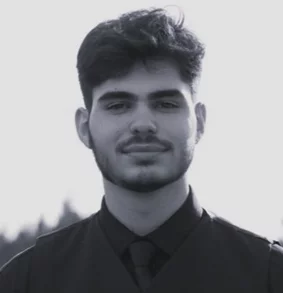Lebanon’s renewal hinges on empowering its youth through economic reform, innovation, and a shift from entrenched political and economic dysfunction toward a fair, productive system.
Lebanon’s greatest asset: Unlocking the power of an educated generation
Lebanon’s greatest asset: Unlocking the power of an educated generation


Lebanon’s future depends on its youth. The Lebanese educational heritage breeds the soil for a talented, energetic, innovative, and multilingual generation to flourish. For too long, however, Lebanon’s young people have been sidelined by a political and economic system that neither empowers them nor rewards their efforts. The youth and the economy must go hand in hand, not as parallel priorities but as interdependent forces driving growth and renewal.
Mariam El Karim Chokor (2025, Annahar) notes that Lebanon’s strong academic culture and high university enrollment, where nearly 50% of high school graduates pursue higher education, contrast sharply with its youth unemployment rate of over 47%. 60% of graduates feel unprepared for the job market, while fewer than 25% of universities offer courses in emerging fields like AI or data analytics, and only 12% of students complete internships before graduating. Without systemic reforms to modernize curricula, expand industry partnerships, and shift societal attitudes toward skills, Lebanon will face continued youth frustration, brain drain, and economic stagnation.
The widely repeated phrase “investing in youth is investing in the future” gained prominence in 2016 when it was used by Maldives Minister Dunya Maumoon and Belarusian President Aleksandr Lukashenko. Their message is simple but powerful: societies that prioritize their youth secure their long-term stability and growth. For Lebanon, the latter should not just merely be a message, but the mindset for the development of its future economic models.
The old rentier, debt-fueled economic model that once sustained Lebanon is no longer viable. A new economy, one based on creativity, innovation, and hard work rather than privilege and clientelism, is needed to protect the youth. According to Bisat and Diwan (2025), for decades the principles of liberalism were distorted by a system of oligarchy and sectarian control. Markets were captured by monopolies, and public institutions became tools for private enrichment. The “new” Lebanon must reject this model and build an economy rooted in fairness that is supported by transparent governance and global integration. This transformation cannot happen without political reform, for it is the entrenched political elite that has long resisted the kind of structural changes needed to unleash the potential of Lebanon’s youth.
Lebanon has every reason to succeed. Its people are educated, multilingual, and globally connected. Its diaspora remains deeply engaged, serving as a reservoir of talent and capital.
Despite immense challenges, certain sectors have shown surprising resilience and continue to offer opportunities for young entrepreneurs. The latest analysis conducted by the UNDP identified several areas with strong potential for youth employment and innovation. The wholesale and retail trade sector remains one of the largest employers, accounting for roughly one-fifth of total youth employment and has demonstrated notable stability even amid crisis, contributing significantly to GDP growth in 2020. The ongoing digital transformation of trade, particularly the rise of e-commerce after the pandemic, presents an opportunity to shift this sector toward higher-value activities. By embracing digitization, Lebanon can help young entrepreneurs modernize retail operations, expand online services, and create sustainable employment opportunities. From coding and software development to consulting and digital marketing, Lebanese youth are already finding creative ways to participate in the global digital economy. What is required is targeted investment, mentorship programs, and reliable infrastructure.
The manufacturing sector follows closely in its potential to generate youth employment. Sub-sectors such as agri-food processing, artisanal production, and cultural and creative industries hold particular promise. These industries combine Lebanon’s historical craftsmanship with modern design and branding, offering high-value exports that appeal to global markets. Encouraging youth-led innovation in these fields could not only revitalize local production but also redefine Lebanon’s image abroad as a hub of quality and creativity.
The identification of these promising sectors is only the first step. Economic potential alone cannot translate into growth without meaningful policy reform. Lebanon needs a coherent national strategy that creates incentives for production, stimulates labor demand, and ensures access to capital for small and medium enterprises. Regulatory frameworks must encourage innovation and competition, not protect monopolies and political interests. At the same time, education systems must evolve to equip young people with the technical and entrepreneurial skills demanded by modern industries.
As Dr. Fadi Nicholas Nassar (2022, Lebanese Center for Policy Studies) puts it: “The youth are not failing Lebanon; the country is failing them. And time is running out”.
A new social and economic contract must emerge, one that treats youth not as beneficiaries of aid but as key agents of transformation. The Lebanese diaspora, too, must be reconnected to the homeland through transparent channels for investment, knowledge transfer, and mentorship. Lebanon needs institutional reforms that prioritize the potential, aspirations, and needs of its youth. Only by empowering them can the country achieve the growth and prosperity it rightfully deserves.


